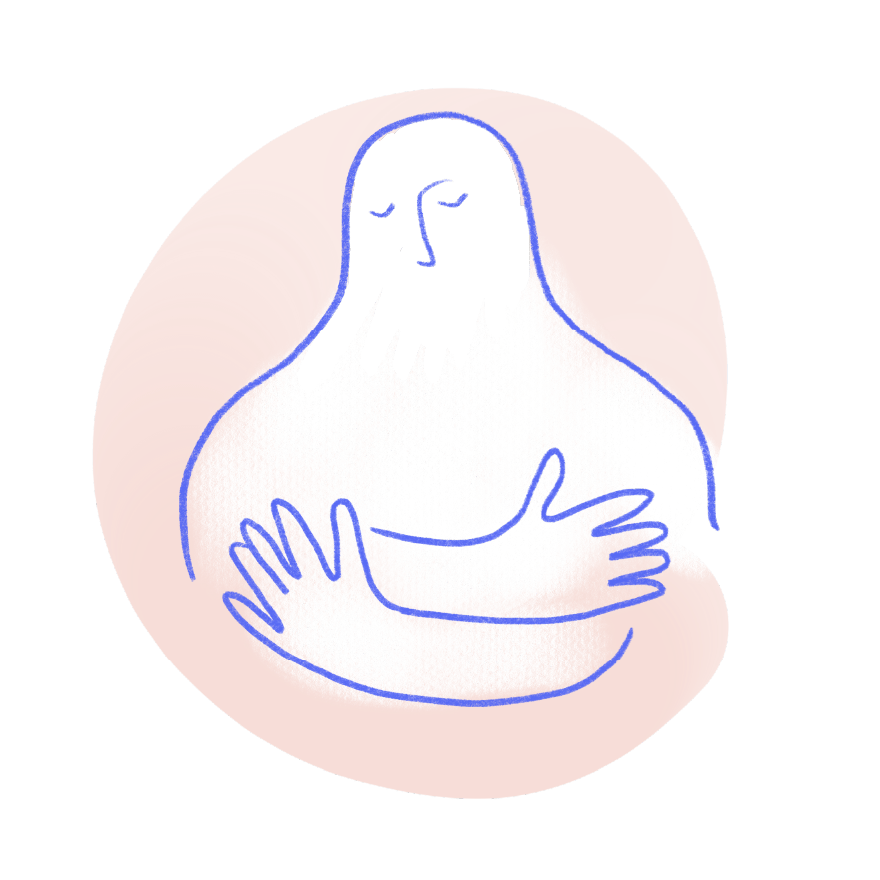Different things will work for different people, and what you need might change from day to day. Try to listen to what you need – this might look like a slow walk in nature and an afternoon in bed, or you may want to go for a run or meet up with friends. Try to be gentle on yourself – it’s normal to be a bit of a mess after someone dies!

Feel
Many of us bottle up our grief and distract ourselves when we feel emotions bubbling up. It’s normal to sometimes feel numb, or want distractions, but feeling your feelings is a really important part of processing grief. If we don’t, we may end up feeling very heavy, stuck, or experiencing other problems later on.
Express
Find a way to express your grief and remember the person who has died. This could be talking – to someone you’re close with, or maybe someone less connected to the situation like a tutor, a counsellor, or in a support group. If you don’t feel comfortable or aren’t sure who to turn to, you could try writing it down.


Rest
Grief can be exhausting. Take one day at a time and listen to your body. Don’t feel pressured to keep up with your normal routine or with what everyone else is doing. Ask for help and don’t be hard on yourself if things seem to be falling apart.
Slowing down gives our bodies space to process emotions. Being busy with distractions can help sometimes, but resting helps our hearts to heal.
Move
It can be good to get out of your mind and into your body. This could be intense exercise or as gentle as a walk and a stretch. Ask yourself: what would feel good in this moment?
Movement can help shift difficult emotions and is a good way to get some fresh air or time in nature, if you are able to exercise outside.
If you’re feeling overwhelmed, you could try yoga. This video might be a good place to start: ‘Yoga for Grief’


Connect
Connect to things that make you feel good. This might mean being out and about with others, or maybe walking in nature, or spending an evening by yourself. You don’t need to feel guilty for feeling better or enjoying yourself – it doesn’t mean you’re forgetting the person who has died. It’s okay to say no too, if you don’t feel ready or if your interests have changed.
We asked four students what has helped them…
Looking for further help?
Visit out Student Support page to find out about upcoming workshops and links to other organisations that can help you. You might also want to speak to a tutor that you trust or look at your university’s wellbeing services.
